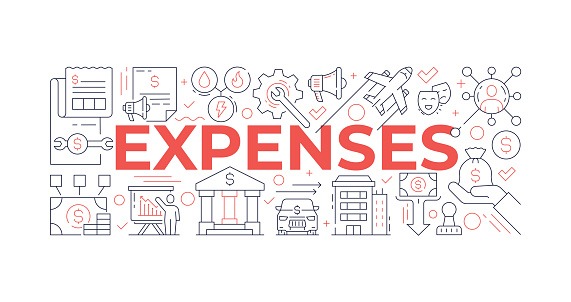Freelancers & Creators: How to Legally Reduce Your Tax Bill and Keep More of Your Earnings
A must-read for UK-based content creators, influencers, and freelancers on managing tax-efficient earnings, allowable expenses, and VAT pitfalls.
TAX ADVICEVATEARNINGSALLOWABLE EXPENSES
Cre8tax
1/21/20253 min read
As a freelancer, influencer, or content creator in the UK, managing your finances is just as important as creating engaging content.
When you work for yourself, you don’t have an employer handling your taxes, pension contributions, or providing financial security. Without a solid grasp on your finances, you risk unexpected tax bills, cash flow issues, and missing out on valuable tax deductions.
A well-managed financial strategy allows you to plan for the future, invest in better equipment, and ultimately grow your brand without the stress of financial uncertainty.
The good news? There are several legal ways to reduce your tax bill and keep more of your hard-earned money. In this guide, we’ll walk you through practical, HMRC-compliant tax-saving strategies tailored for digital entrepreneurs like you.


Register as Self-Employed & Stay on Top of Your Taxes
If you're earning more than £1,000 per year from your content creation or freelance work, you must register as self-employed with HMRC. This ensures you're paying the correct tax while also allowing you to benefit from certain tax reliefs.
Make Use of the Trading Allowance
If you earn less than £1,000 annually from content creation, you don’t need to report it to HMRC thanks to the Trading Allowance. However, if you make more than £1,000, you can still deduct this allowance instead of claiming business expenses—whichever is more beneficial.
Claim Allowable Business Expenses
Equipment & Tech – Laptops, cameras, microphones, lighting, and other tools essential for content creation.
Software & Subscriptions – Editing software (e.g., Adobe Premiere, Final Cut), cloud storage, website hosting, and premium social media tools.
Office & Home Office Costs – A portion of your rent, mortgage interest, utilities, and broadband costs if you work from home.
Travel & Accommodation – If you attend events, collaborations, or business meetings, you can claim associated travel expenses.
Marketing & Advertising – Website costs, social media promotions, and paid ads.
Professional Fees – Accountant fees, legal services, and business insurance.


Use the Flat Rate VAT Scheme (If Registered for VAT)
If your earnings exceed £90,000 per year, you may need to register for Value Added Tax (VAT). The Flat Rate Scheme allows you to pay a fixed percentage of your turnover to HMRC while keeping a portion of VAT collected from clients or brand deals. This can simplify accounting and, in some cases, reduce your tax liability.
Pay into a Pension (Self-Invested Personal Pension – SIPP)
Contributing to a pension scheme not only helps secure your future but also reduces your tax bill. Contributions to a Self-Invested Personal Pension (SIPP) receive tax relief, meaning for every £80 you contribute, the government adds an extra £20 (up to certain limits).
Consider Setting Up a Limited Company
If you're earning over £50,000 per year, forming a Limited Company could be a tax-efficient move. Instead of paying Income Tax and National Insurance on all earnings, you can pay yourself a small salary and take the rest as dividends, which are taxed at a lower rate. However, this comes with additional administrative responsibilities, so consult an accountant before making the switch.
Make the Most of the Marriage Allowance
Hiring an accountant might seem like an extra expense, but it can actually save you money in the long run. A tax specialist can ensure you’re making full use of allowances, expenses, and reliefs while keeping you compliant with HMRC regulations.


Plan for Your Payments on Account
HMRC requires self-employed individuals to make advance tax payments twice a year (on 31st January and 31st July). If you’re new to self-employment, these payments can catch you off guard, so set aside money regularly to avoid surprises.
Keep Proper Financial Records
Accurate record-keeping ensures you claim every allowable expense and avoid any HMRC penalties. Use accounting software like QuickBooks, Xero, or FreeAgent to track your income and expenses efficiently.


Final Thoughts: Take Control of Your Taxes
Understanding and managing your taxes doesn’t have to be daunting. By using these legal tax-saving strategies, UK influencers, freelancers, and content creators can keep more of their earnings while staying compliant with HMRC rules.
If you need expert tax advice tailored to your situation, consider consulting a tax professional to make sure you’re maximising every opportunity to reduce your tax bill legally.
Want more tax-saving tips? Follow our blog for the latest updates on UK tax laws and financial planning for digital entrepreneurs!




